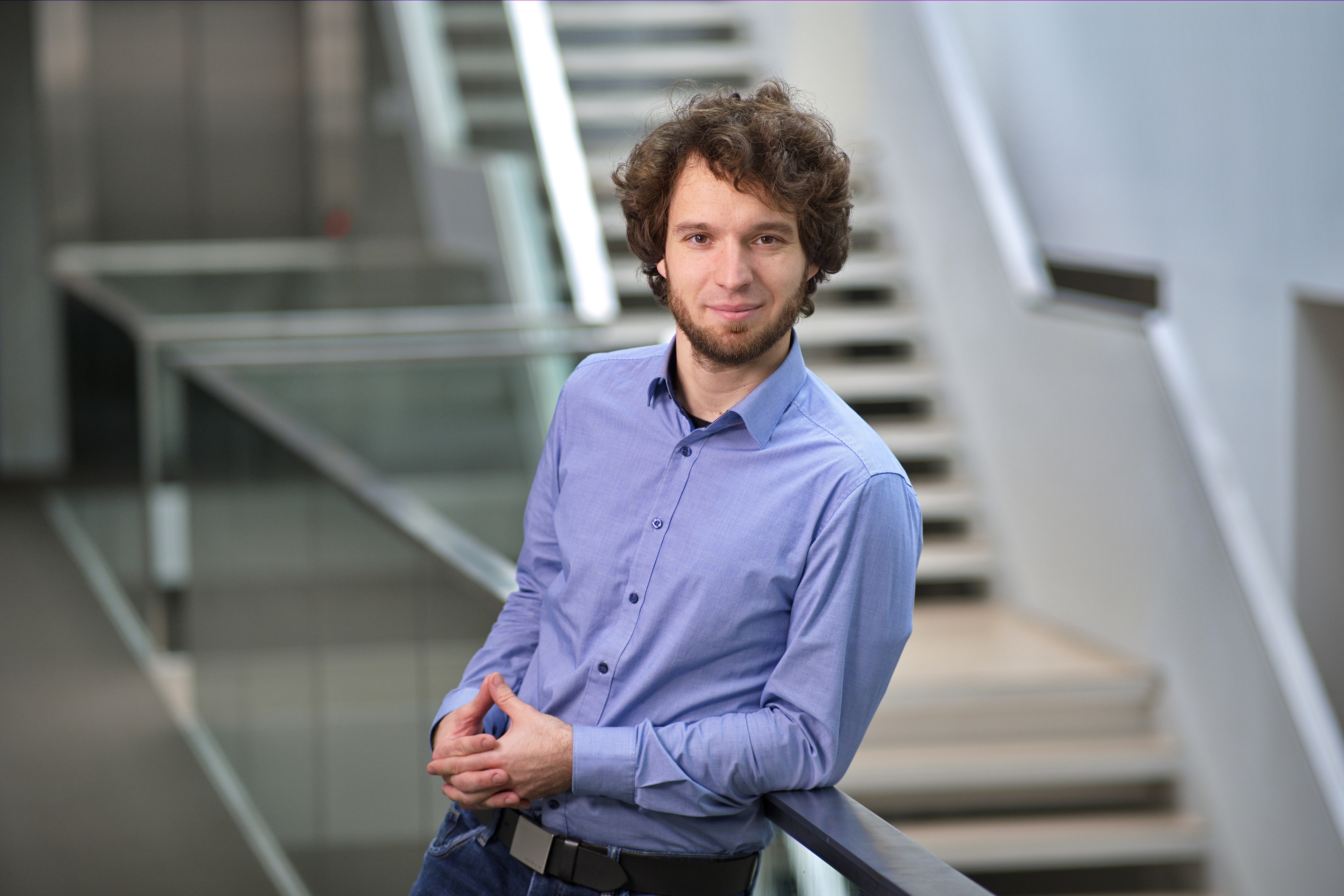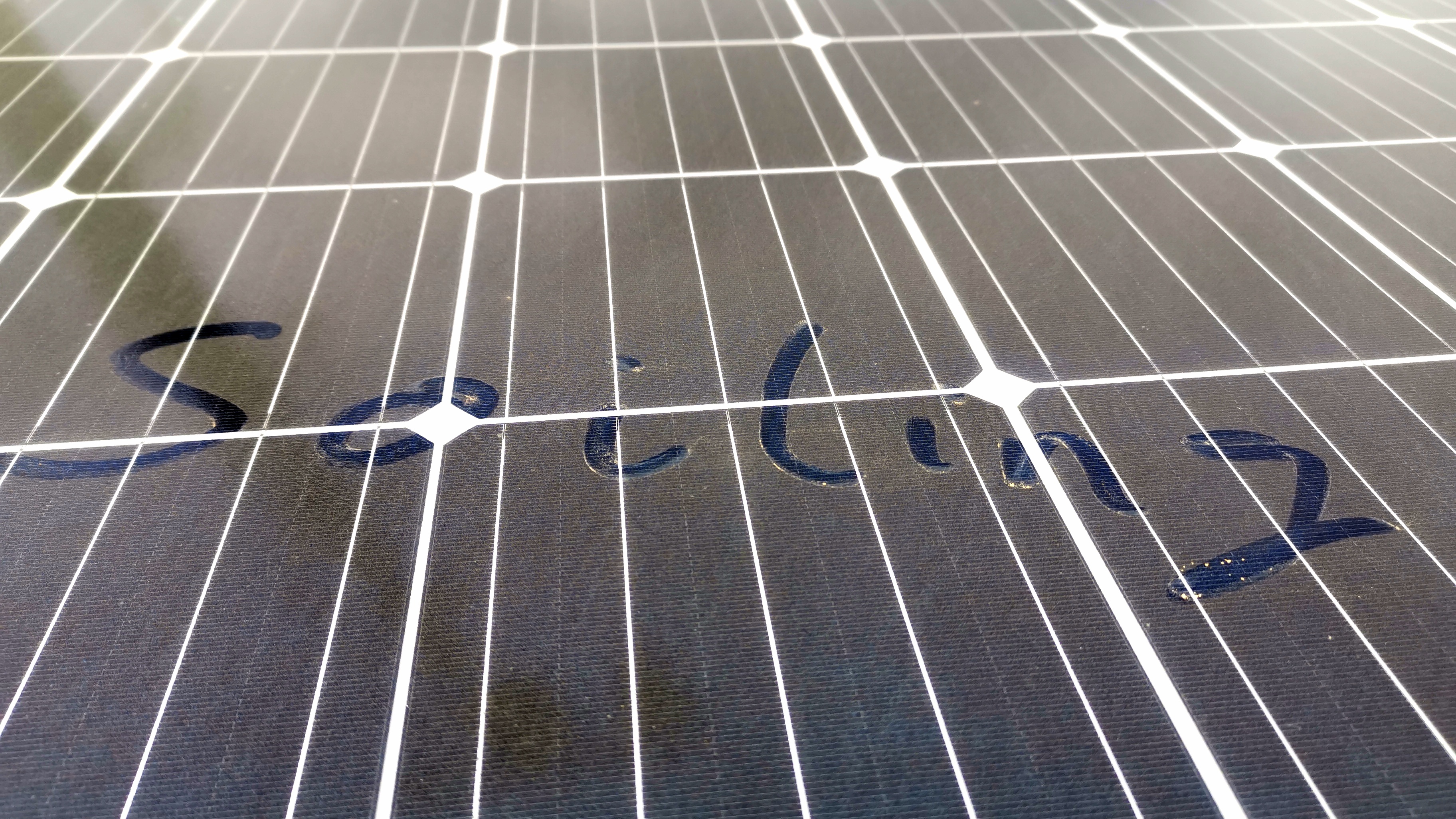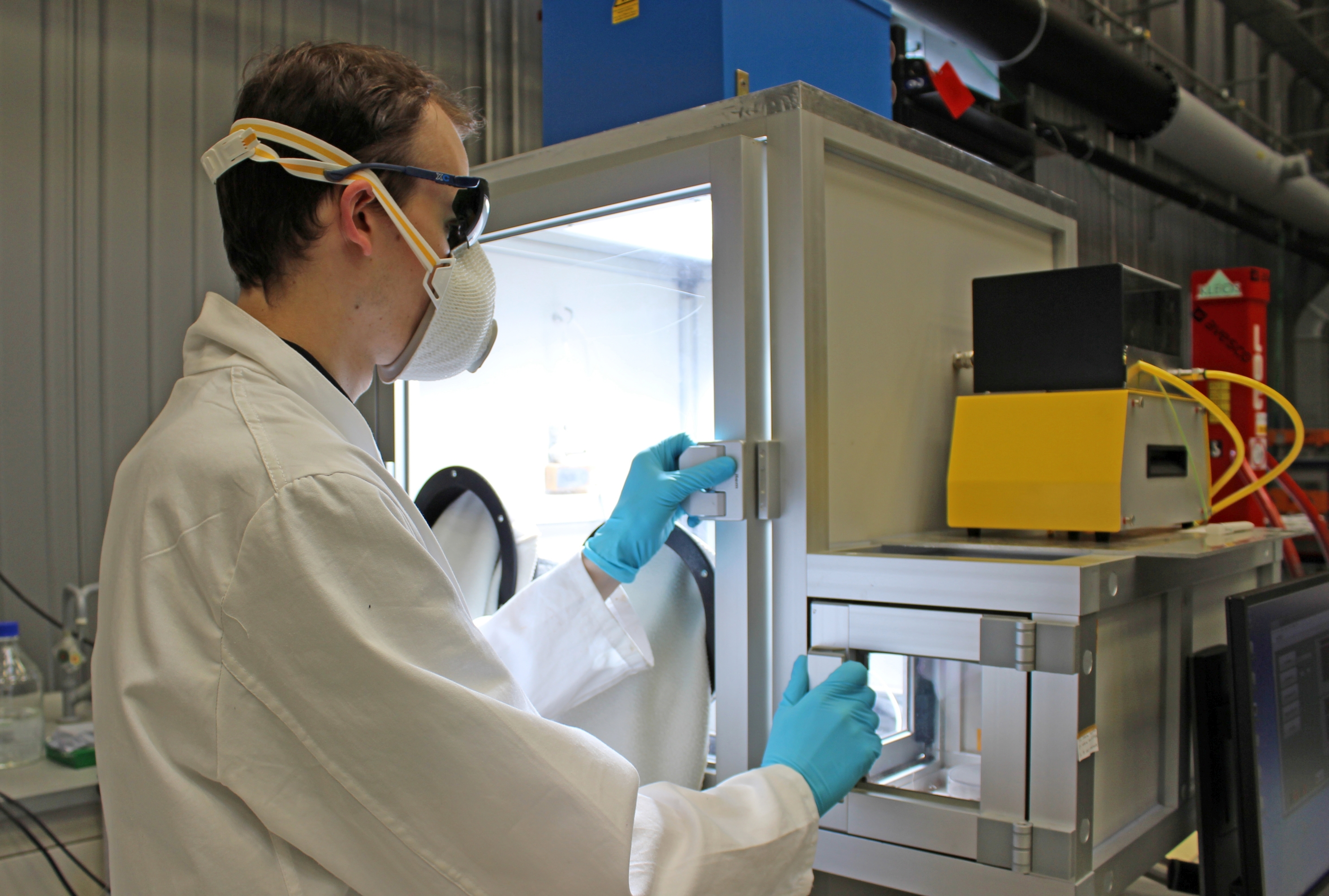Klemens Ilse honored with Schott AG Materials Award
The contamination of solar modules by dust and sand causes significant yield losses in the increasing use of photovoltaic systems in desert regions. In his doctoral thesis, Dr. Klemens Ilse from the Fraunhofer Institute for Microstructure of Materials and Systems IMWS researched the causes, analyzed the magnitudes and developed solution strategies. For this he was awarded the Schott AG Materials Prize.



The prize, endowed with 1500 euros, was presented for the fourth time for outstanding theses that were written at the Fraunhofer IMWS. Dr. Matthias Müller, Executive Vice President Research & Development at SCHOTT AG, presented the award during the digital board of trustees meeting of the institute. "In addition to its technical quality, Klemens Ilse's dissertation is characterized by a very high level of application relevance. The solutions he has developed address a pressing problem, have elucidated the causes of a physically complex phenomenon and can make an important contribution to a sustainable energy supply," says Müller.
In his dissertation, which consists of nine individual publications in international journals, Ilse investigated soiling processes on the surfaces of photovoltaic modules in a systematic manner for the first time, developing a materials science and model-based understanding of the chemical-physical interactions between dust particles and glass surfaces under natural environmental conditions. In addition to an analysis of material samples from different desert regions, such as Qatar and Chile, his work also included the development of an experimental setup that can be used to simulate pollution processes in the laboratory. In addition, Klemens Ilse undertook a techno-economic analysis of various pollution control strategies. Finally, he derived new technological approaches to pollution reduction, for example through active or passive dew prevention.
"The Schott AG Materials Award is a great recognition for my work, for which I would like to express my sincere thanks. For the detailed analyses of material samples as well as the complex development of a test rig, I had ideal framework conditions at the Fraunhofer IMWS and also through the cooperation with Anhalt University of Applied Sciences. The award confirms how relevant the issues investigated are and spurs me on to continue working on innovative solutions for the efficient use of renewable energies worldwide," says Ilse.
Two other papers were awarded 500 euros each. Paul Schenk developed and set up an automated test rig for peel tests to evaluate plastic laminates installed in solar modules as part of his master's thesis, which was written jointly with the HTWK Leipzig University of Applied Sciences. Such peel tests are a common procedure for quality control of laminates. Nicola D'Antrassi's master's thesis also received a recognition award. He dealt with the mechanical characterization of lightweight materials, which are mainly used in modern large aircraft construction. Based on experiments and data evaluation, he compared two variants of a test method with regard to the question of how it can be used to determine defects caused by fatigue in the material.
All young scientists at the Fraunhofer IMWS were eligible to apply for the Schott AG Materials Award, as were all those who had completed a master's, diploma or doctoral thesis associated with the institute. According to the criteria of scientific achievement, level of innovation, professionalism and application relevance, a jury selected the three finalists from the numerous submissions, who presented their results in short talks to the board of trustees. The members of the Board of Trustees then selected the winner.